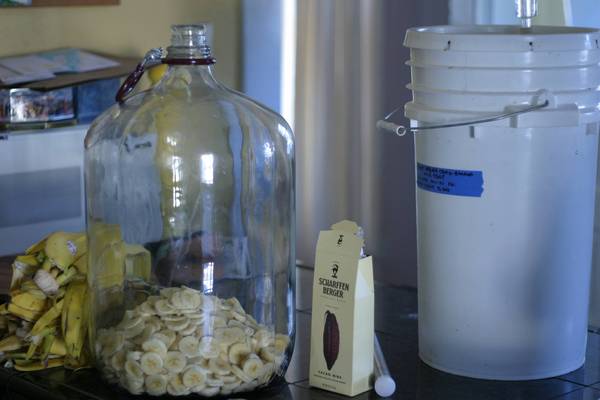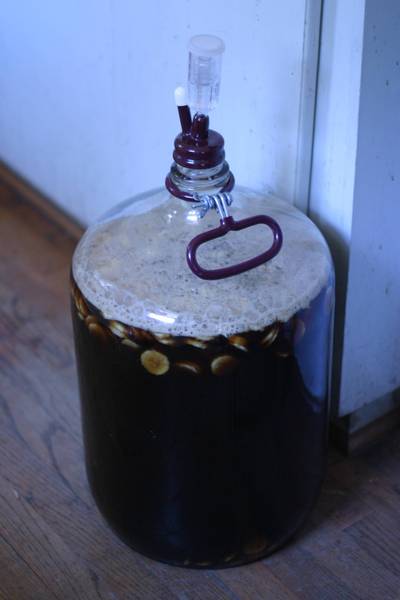wendelgee2
Well-Known Member
Hey folks.
SWMBO wants a banana milk stout, and honestly, I'm excited to try brewing with an unconventional ingredient.
So. What do you think the best process would be for mashing bananas?
The thread on doing a grocery store beer mentions that bananas are self-mashing via a-amylase at around 100F. But, it also says that b-amylase is more present in very ripe bananas, and I assume that requires a higher temp to activate (if it operates in bananas the same as it does in barley). The other option would be to do a no sparge mash and let the wort (and all of the active enzymes) lauter out onto the banana sludge. Then: everything into the kettle.
Also, anyone worked with bananas and have any idea how many pounds would be good?
What are you so happy for?

You're going in the pot, fool!
SWMBO wants a banana milk stout, and honestly, I'm excited to try brewing with an unconventional ingredient.
So. What do you think the best process would be for mashing bananas?
The thread on doing a grocery store beer mentions that bananas are self-mashing via a-amylase at around 100F. But, it also says that b-amylase is more present in very ripe bananas, and I assume that requires a higher temp to activate (if it operates in bananas the same as it does in barley). The other option would be to do a no sparge mash and let the wort (and all of the active enzymes) lauter out onto the banana sludge. Then: everything into the kettle.
Also, anyone worked with bananas and have any idea how many pounds would be good?
What are you so happy for?

You're going in the pot, fool!
















![Craft A Brew - Safale S-04 Dry Yeast - Fermentis - English Ale Dry Yeast - For English and American Ales and Hard Apple Ciders - Ingredients for Home Brewing - Beer Making Supplies - [1 Pack]](https://m.media-amazon.com/images/I/41fVGNh6JfL._SL500_.jpg)










































